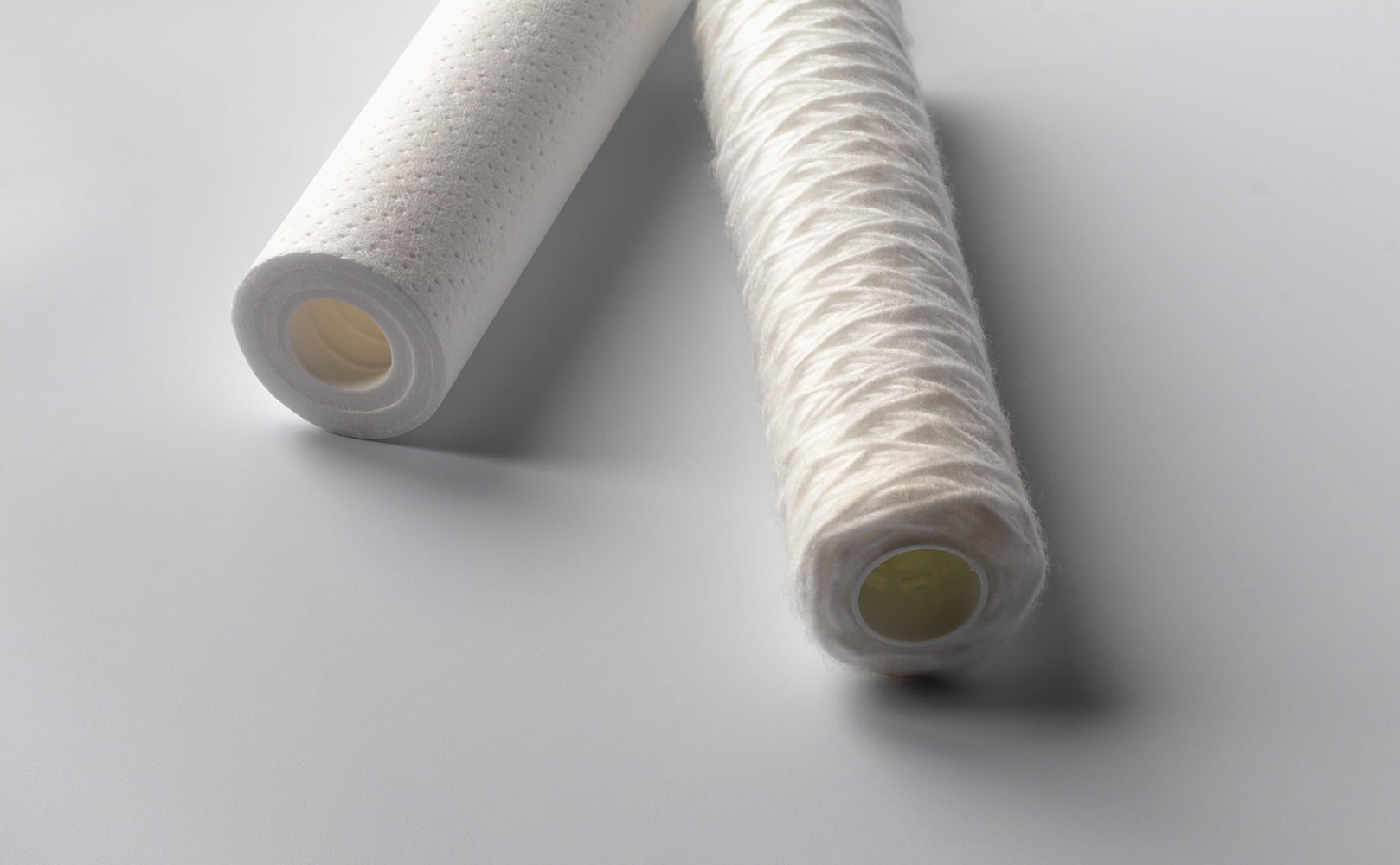5-Micron vs 50-Micron Water Filter – Which to Choose?
Written by: Gene Fitzgerald // Last Updated: Dec 13, 2022
This page may contain affiliate links. If you buy a product or service through such a link we earn a commission at no extra cost to you. Learn more.
There is a variety of micron ratings when shopping for sediment water filters.
Choosing right is key if you want effective filtration with minimal maintenance.
In this article, we’ll discuss 5-micron vs 50-micron sediment filters.
Key Takeaways
- Have your water tested to determine if you need a 5 or a 50-micron sediment water filter.
- A 50-micron filter catches dirt, dust, sand, and larger asbestos particles.
- A 5-micron sediment filter removes all of the above as well as some germs and silt.
- Tip: Use both a50-micron and a 5-micron filter in combination.
What’s a Micron Rating?
A micron is a measurement. Micron ratings specify the size of contaminants that a sediment filter will remove from your water supply.
The Size of a Micron
A micron measures 0.000001 meters; or one-millionth of a meter. To give you a better idea of scale, a human hair is approximately 70 microns.
In other words, 1 micron is really, really small; so small that particles that are 1 micron in size are invisible to the naked eye.
Absolute vs Nominal Micron Ratings
Micron ratings have two classification levels: absolute and nominal.
- Absolute: these give a precise and reliable rating of the smallest micron size a sediment water filter will eliminate.
- Nominal: these are a more general, approximate idea of the system’s filtration ability. You can expect 70-80% of particles of the indicated size to be removed.
What’s a Micron Filter?
A micron filter is a sediment water filter that has been tested and certified to remove the specified micron size particles – so a 5-micron filter can remove particles measuring 5 microns and larger, whereas a 50-micron filter can remove sediments sized 50 microns or larger.
5-Micron vs 50-Micron Water Filter – Choosing the Right Micron Rating
So, 5-micron vs 50-micron water filter, which one is best for you?
This will depend on your water quality and what your goals are.
If your water contains sediments smaller than 50 microns, then the 50-micron filter won’t have the effect you need; you will need a 5-micron filter.
However, if you only need to filter out coarser dirt, larger than 50 microns, then a 50-micron filter will meet your needs.
One option is to start with the 50, test it with your water, and move down to lower-rated micron filters if necessary. This process is called ‘step-down filtration’.
This is preferable to starting with a smaller micron-rated filter, as it has the potential to get clogged up quickly, if your water supply contained much larger particles or sediment. The lower micron rating can also slow the water flow.
Ideally, you should have your water tested to ascertain the most appropriate filter for you, based on the types of sediment present and their size, before choosing your filter accordingly.
What Do You Need to Remove?
When choosing the correct filter for you, consider the size of particles in your water supply and how many gallons of water you need every minute.
50 Microns
50-micron filters remove particles sized 50 microns and above:
- Larger dirt such as rust chips
- Sand
- Some dust and asbestos
5 Microns
5-micron filters remove particles with a size of 5 microns and above – so even smaller stuff, such as silt, some germs, and tiny sediments.
Consider Water Pressure
You also need to consider how many gallons per minute of water you need; with smaller micron-rated filters restricting more, thus slowing the supply. If you don’t pay attention to this, you might experience water pressure drops throughout your entire home.
If you have any questions about 5-micron vs 50-micron water filters please don’t hesitate to leave a comment below!
Information provided on BOS is for educational purposes only. The products and services we review may not be right for your individual circumstances.
We adhere to strict editorial guidelines. Rest assured, the opinions expressed have not been provided, reviewed, or otherwise endorsed by our partners – they are unbiased, independent, and the author’s alone. We fact-check all content for accuracy. It is accurate as of the date posted and to the best of our knowledge.


